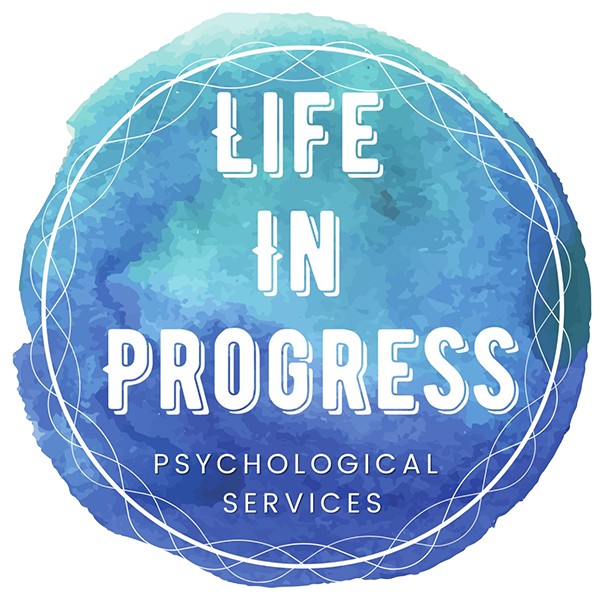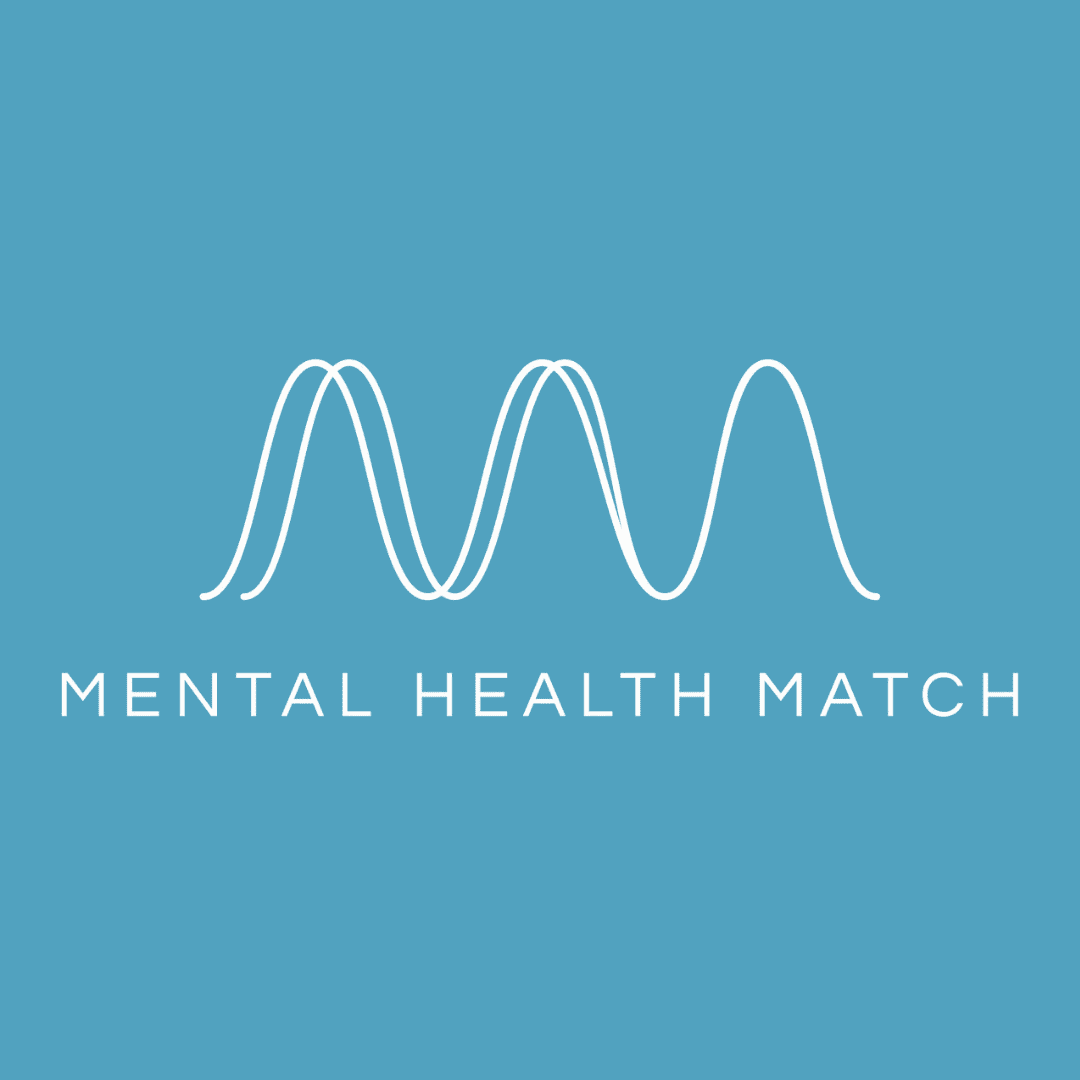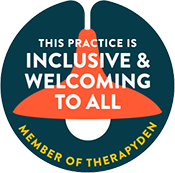Frequently
Asked Questions
What can I expect with the free consultation?
Online therapy has expanded the possibilities of finding a therapist that is a great fit for you. Remember to always take advantage of free consultations to see if the therapist’s interpersonal style is a good match for you. Given the vulnerability that comes with engaging in therapy, finding a good fit with your provider is the most important factor in finding success with your goals. For this reason, the first step to working together is scheduling a free consultation. During this consultation, we will have a 15-minute conversation to explore your therapeutic needs and desires and determine if they are a match with the services and expertise I provide.
Is online therapy effective?
It is understandable to be curious if online therapy is as effective as in-person therapy and wonder if you
losing out on any benefits this way. Fortunately, studies show that you’re not missing out on any therapy goodness. Online counseling is equally as effective as face-to-face counseling in treating depression, panic disorders, and anxiety disorders.
In my experience, many clients have found online counseling even more comfortable than traditional in-
person therapy. Since sessions happen in a familiar environment, it’s often easier to open up and feel at
ease.
If you’re still not sure if online therapy is right for you, schedule a free consultation with me and we can
discuss if this format will be the best at meeting your therapy needs.
Note: Online counseling is not appropriate for those actively in crisis (i.e., having thoughts of hurting
yourself or others and planning to take action on those thoughts). If you are experiencing thoughts of
harming yourself or someone else, please call the suicide hotline 1-800-273-8255, call 911, or go to the
nearest emergency room.
What are your virtual office hours?
Sessions are by appointment only. Being an exclusively online practice, I can accommodate most schedules. Office hours are Monday-Friday from 9am – 5pm CST.
I’ve never talked to anyone. I’m used to handling things on my own. Aren’t people who go to therapy weak?
NOPE. Not at all. People who ask for help know when they need it and have the courage to reach out.
Everyone needs help now and then. In our work together, I’ll help you explore and identify your personal strengths and how to engage them to reduce the influence of the problems you are facing.
How do I know if I need therapy?
I have had clients often come to therapy and comment that they feel “silly” engaging in therapy for their relationship issue, or whatever challenge they are experiencing, or that they feel they are “wasting my time” because they feel they are taking up time that someone else could “really use” for their “bigger/more serious problem.” FALSE. You are worthy of the time you want to invest in improving your own effin life and your problem(s) are important and also deserve to be addressed! You deserve to go to therapy just as much as anyone else! You do not have to have experienced some major trauma, be so depressed that you cannot get out of bed for school/work, have 10 panic attacks a day or get so anxious you are sweating through your clothing for presentations and social interactions. I literally believe EVERYONE could benefit from therapy to work on getting additional support, skills, insight, motivation, expert input into their goals and areas they are trying to grow more in. My goal is to equip you with the tools and resources needed to support you in overcoming life’s toughest challenges and help you on your way to being your favorite version of yourself.
What’s the difference between talking to you or my best friend or family? And will what we discuss ever get back to my family/friends?
Making big decisions is difficult and you deserve a place without having another persons agenda (no matter how well intentioned), may not fit your particular situation. A mental health professional can help you approach your situation in a new way– teach you new skills, gain different perspectives, listen to you without judgment or expectations, and help you listen to yourself.
Furthermore, counseling is completely confidential. You won’t have to worry about others “knowing your business” or accidentally sharing something you shared with other family members.
o Confidentiality is the bedrock of therapy; it protects your privacy to share freely and openly in your sessions. Your sessions and all information you disclose are confidential. Except for the instances stated below, which are required by law, I will not share your information or respond to inquiries of any kind from any source without your written consent. All mental health providers are required to abide by these guidelines.
o If in my clinical judgment, you pose a threat to harm yourself, and you refuse appropriate treatment, I am ethically bound to notify the appropriate parties (those who can intervene to protect you).
o If you indicate a serious imminent threat to harm another person, I am legally required to warn the intended victim(s) and the police and/or to obtain a civil commitment to the state mental health system.
o I am required to report any suspicion of child (anyone under the age of 18) or elder abuse or neglect to the appropriate authorities.
o In rare instances state or federal courts may subpoena my records for testimony. In most instances, we are forced to honor these subpoenas.
Lastly, if your situation provokes a great deal of negative emotion, and you’ve been confiding in a friend or family member, there is the risk that once you are feeling better you could start avoiding that person so you aren’t reminded of this difficult time in your life.
Do you provide family therapy?
How does online therapy work?
I’m pleased to be able to offer therapy exclusively through secure online video sessions. Connecting
online eliminates the difficulty and inconvenience of traveling to an office and allows you much more
flexibility and comfort. Grab your favorite blanket, cup of coffee or tea and allow your pets (so far I have
had dogs, cats and a snake; not all at once mind you) to join us while you connect from your home. You may even take advantage of this flexibility to attend a session before or after work, over lunch, while out on a walk, or while the tiny humans nap.
The relationship that is built over telehealth can be just as strong as the one built in an office, face to face. Research shows that the outcomes are the same whether people are receiving their therapy in person or online. Video sessions also have the pros of not having to rush through traffic, worry about childcare, and have more flexibility to have sessions that best fit your needs and schedule #winning.
No more awkwardly sitting in a waiting room or fighting traffic to make your appointment. Online therapy means you can get the support you need from the comfort of your living room, your office, or your back porch (anywhere private!) that has a reliable internet connection.
Sessions take place using a 100% private, HIPAA-compliant video-conferencing platform (i.e., like Zoom or Skype, but more secure). I use a platform called Simple Practice, and you will receive a link inviting you to a secure video room for each session.
Since internet problems do occur from time to time, I use a different program called Spruce, in which case I would send you a link directly at the time it is needed. If you are able to stream movies on Netflix without glitches or audio lag then you likely have sufficient internet access to
utilize online therapy using these sites.
Prior to your appointment, a private link will be sent to your email. At the scheduled time, simply click the link to enter our virtual therapy room. Sessions are 50 minutes and are available weekly, bi-weekly, or monthly according to your needs and goals.
How much does each session cost? And do you accept insurance?
Therapy is a priceless investment into your wellness! You are SO worth the investment.
Are you already investing in yourself in other ways (e.g., vacations, getting your hair done, massages, tattoos, mani-pedi’s, visiting the chiropractor, etc. Think about how much you invest in the above services, why you invest in these activities, and how long do the feelings last when you are done. Maybe you invest in those activities because it helps you relax? it is your “me time?” it is what you consider self care? it makes you feel good? it gets rid of pain? Engaging in therapy offers you ALL of this AND MORE! In therapy you are paying for more than just the time we meet for your appointment, you are paying for the transformation that occurs that can last well beyond a few hours or a few weeks.
Individual sessions are $235 (50-minutes), $300 for 90-minute sessions and Couples therapy sessions are $310 (75 minutes)
I totally understand that spending your hard-earned $$ on yourself can be difficult.
I want you to get the most out of your investment.
Extra Value I provide for you:
Personalized Client Portal
Online Scheduling
Secure Messaging
Automatic Appointment Reminders
Assessments to Monitor your Progress (if warranted)
Coordination of Care with Other Care Providers (as needed; e.g., psychiatrist, primary care doctor)
I do not accept insurance, however it is entirely possible your insurance company may accept something called a Superbill (this is just a fancy PDF receipt for therapy) that I provide and you can submit (PS submitting is quick and there is usually a confidential fax, email or portal for you to send the Superbill to) for potential reimbursement. Huzzah! Please understand just because I do not accept your insurance, this does not mean we won’t be able to work together. Please contact your insurance provider with the phone number on your insurance card and inquire about “out of network benefits” and they will be able to inform you about what, if any, portion of services may be reimbursed depending on your plan/deductible. You will be responsible for the full fee at the time of service.
What is required for online therapy? Do I need any equipment?
All you need for online therapy sessions is a private space, a device with access to a camera and
microphone, and a strong Wi-Fi connection. A laptop with a webcam or a cell phone both work well. And
if you are able to stream Netflix (or similar services) without issues, then your internet will be able to handle video therapy sessions. Headphones can also help reduce audio interference and create a more connected experience. Additionally, headphones can increase your privacy if you are at home and finding it difficult to find a place to have your session without family members overhearing what is being discussed.
What can I expect and how can I prepare?
gether toBefore starting any type of therapy, it is common to feel anxious, stressed, scared, and maybe even worried that it won’t work for you.
Because each person has different issues and goals for counseling, it will look different depending on the individual. I tailor my therapeutic approach to your specific needs. The first time we meet will be more of an extended Q and A, based on any questions I have after you complete the paperwork I email you before we meet. During the first session, we will work to develop an understanding of the concerns, hopes, and the goals that bring you to therapy. From there we develop an approach to help you reach those goals. Rest assured that I will walk with you every step of the way to make sure that your investment in yourself is worthwhile, as well as answer any questions along the way.
I encourage people to try to have a couple of ideas of topics they would like to begin working on each time we meet so that you can get the most out of the time we spend together.
It may feel weird when you start, but here are some strategies that you can implement to make the process as smooth as possible:
1. Get prepared – It is important for you to have a private, quiet area for you to have your therapy session. You may even want to have a comfortable blanket and a bottle of water next to you.
Remember to also have a box of tissues like I would supply if you were in my office. I can’t tell you the amount of times I see people wipe away their tears with their hands. Pro tips from a therapist: crying just means you aren’t a robot and is 100% natural and tissues are way more absorbent than skin when it comes to tears.
2. Set up your equipment ahead of time – It is also a good idea to make sure that your device has whatever software your therapist is using already set up on your computer. Test out your microphone and camera to make sure they are working before you have your scheduled session.
Also, remember to close out of tabs which can make your internet drag and freeze.
3. Be ready to adapt – You may experience some technological issues when beginning an online therapy session. This is OK. Make sure you have a plan with your therapist on what to do if a tech issue happens. Usually, most issues can be resolved in a minute or two.
4. Remember this is real therapy – Research suggests that online therapy is just as effective as in-person therapy.
What are your thoughts on medication?
Medication can be effective but it alone cannot solve all issues. Sometimes medication is needed in conjunction with counseling. Our work together is designed to explore and unpack the problems you are experiencing and expand on your strengths that can help you accomplish your personal goals. I do not believe everyone needs to take medication in order to feel better and there are some times, where based on the person, their symptoms and other details related to their mental health, that I may recommend clients consider medication as an adjunct to therapy. I also understand that for a variety of reasons, some people do not wish to take medication. I vow to respect your wishes and also provide accurate information about why I believe this will help and explore your concerns about taking medication.
P.S. I do not prescribe medication, but am happy to help you with referrals to psychiatrists in your area.
How long can I expect to be in therapy?
I will start with my long answer first: I want to give you what you need and get you on your way. Most of my clients are able to see progress within a few short months. Many clients come weekly for 4-6 months and then move to bi-weekly. Some clients really love the therapeutic process and support and will remain in therapy for longer than this (years even). There isn’t really a cookie-cutter prescription to length of time in therapy (i.e., you need 6 sessions for this goal). There are many variables that play a role in how fast progress occurs on your set goals (how often we meet, your commitment to the process, willingness to do work outside of our therapy appointments, etc.). I will say that it is my mission to work as hard as you are willing to on your goals to get you to a place, where you don’t feel you need therapy anymore (or as often). A side effect of great therapy is learning to be your own therapist, in that you will acquire tons of tools, techniques and resources to where you are at a place where you don’t feel that you need therapy anymore! It will be a bittersweet ending (but mostly sweet!).
My short answer to the above question (that you probably won’t like as much): As short as possible and as long as it takes. Therapy ends when you feel that you have completed the work you came to therapy to do. It is a decision that is ultimately in your hands.
I would also like to take a moment to acknowledge that even if you are someone who has been in therapy your “whole life” or off and on for a number of years, this does not equate to you being “crazy” or “broken.”
Do you work with same sex couples?
Do you have a cancellation policy?
To ensure a positive and respectful experience for all clients, I kindly ask that cancellations be made 24 hours prior to your appointment. The therapy hour has been reserved exclusively for you and our time together is valuable. Since I generally have people waiting on a spot, if an appointment is cancelled in less than 24 hours, you will be billed the full session fee. Your card will never be charged as long as you cancel within the required window of time.
Disclaimer
Online counseling is not appropriate for all kinds of problems.
If you are in crisis or having suicidal thoughts, it’s important that you seek help immediately.
24/7 Help is available at your fingertips: please call 1-800-273-8255 (National Suicide Prevention Lifeline) or visit them
at https://suicidepreventionlifeline.org/ and ask for help.
You may also text ‘HOME’ to 741741 to connect with a Crisis Counselor.
If you are experiencing an emergency, please call 911 or go to your nearest emergency room.
Life In Progress Psychological Services, PLLC does not offer emergency services.
Therapy can change your life if you let it…
Life In Progress
Dr. Nichole Vincent, PsyD
“I’m always looking for ways to help you have the best life possible. No matter what you have been through, I believe you can still have a life worth living that is full of meaning.” ~David Kessler
SERVING ALL OF:






